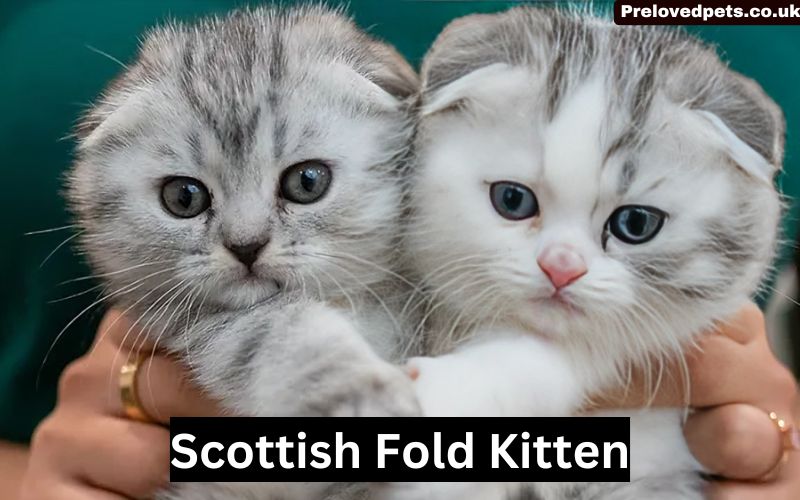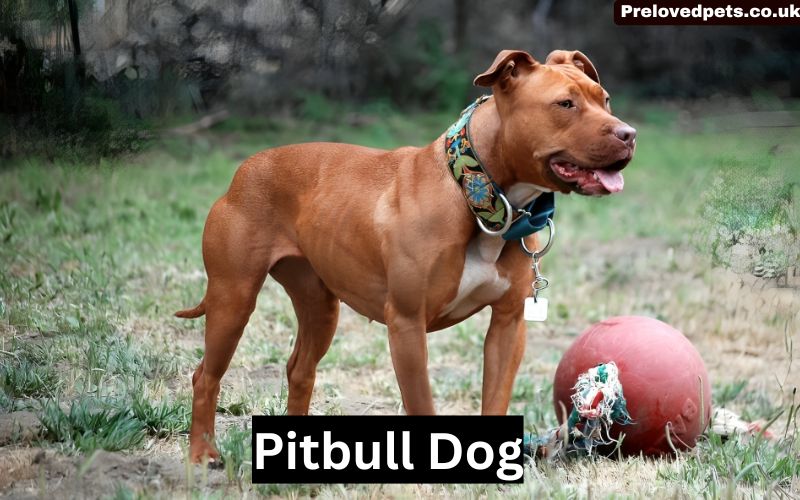Working Cocker Spaniel puppies are a delight for dog enthusiasts, known for their boundless energy, intelligence, and affectionate nature. As one of the most popular breeds in the world, these puppies have a rich history and are cherished for their versatile abilities. This article delves into the origins, characteristics, care requirements, training tips, and overall appeal of Working Cocker Spaniel puppies.
Origins and History
The Working Cocker Spaniel has a storied history that traces back to the original Cocker Spaniels, which were bred primarily for hunting woodcock in the English countryside. The breed’s name, “Cocker,” derives from this specific hunting purpose. Over the years, two distinct lines of Cocker Spaniels emerged: the Show Cocker Spaniel and the Working Cocker Spaniel. While Show Cocker Spaniels were bred for their appearance and temperament suitable for the show ring, Working Cocker Spaniels were developed for their hunting prowess, stamina, and agility.
The Working Cocker Spaniel retained many of the traits that made the breed excellent hunting companions. These dogs are known for their keen sense of smell, high energy levels, and intelligence, which make them exceptional at locating and retrieving game. Despite their working origins, these spaniels have also become beloved family pets due to their friendly and affectionate nature.
Throughout history, Working Cocker Spaniels have been valued not only for their hunting skills but also for their adaptability. They have proven themselves in various roles, from search and rescue to therapy work, showcasing their versatility and willingness to learn. Their history is a testament to their enduring appeal and the enduring bond between humans and dogs.
Physical Characteristics
Working Cocker Spaniel puppies are typically small to medium-sized dogs, with males and females weighing between 25-35 pounds (11-16 kg) and standing about 15-17 inches (38-43 cm) tall at the shoulder. Their physical build is sturdy and athletic, reflecting their purpose as agile and enduring hunting dogs.
One of the most distinctive features of the Working Cocker Spaniel is its expressive eyes, which are often dark brown and convey a sense of intelligence and warmth. Their ears are long and set low, covered with wavy or curly hair that gives them an endearing, slightly tousled appearance. The coat of a Working Cocker Spaniel is typically dense and water-resistant, which protects them in various weather conditions and terrains. Coat colors can vary widely, including solid shades like black, liver, and golden, as well as combinations such as black and tan, liver and tan, or particolored patterns.
The Working Cocker Spaniel’s physical characteristics are not just about looks; they are functional traits that aid in their working abilities. Their compact and muscular build allows them to navigate dense underbrush and rough terrain with ease. The water-resistant coat helps them stay warm and dry in wet environments, making them excellent retrievers in waterfowl hunting. Their overall appearance is a blend of beauty and practicality, embodying the essence of a working dog.
Temperament and Personality
The temperament of a Working Cocker Spaniel puppy is one of its most appealing traits. These dogs are known for their friendly, affectionate, and sociable nature. They thrive on human companionship and are often described as “people-oriented” dogs. This strong bond with their owners makes them excellent family pets, as they get along well with children and other pets.
Working Cocker Spaniels are also highly intelligent and eager to please, which makes them relatively easy to train. Their high energy levels mean they require plenty of physical and mental stimulation to keep them happy and healthy. Boredom can lead to destructive behavior, so it’s essential to provide them with ample opportunities for exercise and play.
In addition to their friendly disposition, Working Cocker Spaniels are known for their resilience and adaptability. They can adjust to various living situations, whether in a bustling urban environment or a quiet rural setting. Their natural curiosity and love for exploration make them great companions for outdoor adventures, hiking, and even participating in dog sports like agility and flyball.
Care and Maintenance
Caring for a Working Cocker Spaniel puppy involves several key aspects, including diet, grooming, exercise, and health care. Proper care ensures that your puppy grows into a healthy, happy, and well-adjusted adult dog.

Diet
A balanced and nutritious diet is crucial for the growth and development of a Working Cocker Spaniel puppy. High-quality commercial dog food that meets the nutritional standards set by organizations like the Association of American Feed Control Officials (AAFCO) is a good starting point. Puppies have different dietary needs than adult dogs, so look for formulas specifically designed for puppies, which provide the necessary nutrients for their growth.
In addition to commercial dog food, some owners choose to supplement their puppy’s diet with fresh, whole foods like lean meats, vegetables, and grains. Always consult with a veterinarian before making any significant changes to your puppy’s diet to ensure they receive the right balance of nutrients.
Maintaining a consistent feeding schedule is also important for preventing digestive issues and promoting healthy growth. Puppies typically require three to four meals a day, gradually transitioning to two meals as they reach adulthood. Fresh water should always be available to keep your puppy hydrated, especially after play and exercise sessions.
Grooming
The dense, wavy coat of a Working Cocker Spaniel requires regular grooming to keep it healthy and free from mats and tangles. Brushing your puppy’s coat several times a week helps to remove loose hair and prevent matting. Bathing should be done as needed, using a gentle dog shampoo that doesn’t strip the coat of its natural oils.
Ears are a particular area of concern for this breed due to their long, floppy nature, which can trap moisture and debris, leading to infections. Regular ear cleaning with a veterinarian-recommended solution can help prevent these issues.
Nail trimming, teeth brushing, and regular check-ups with a veterinarian are also important aspects of grooming and overall health maintenance for your Working Cocker Spaniel puppy. Proper grooming not only keeps your puppy looking their best but also provides an opportunity to check for any skin issues, lumps, or parasites that might require veterinary attention.
Exercise
Working Cocker Spaniels are high-energy dogs that require plenty of exercise to stay healthy and happy. Daily walks, play sessions, and opportunities to run and explore are essential for this breed. They excel in activities like fetch, agility, and obedience training, which provide both physical exercise and mental stimulation.
Due to their hunting background, Working Cocker Spaniels also enjoy activities that engage their natural instincts, such as scent work and retrieving games. Providing a variety of activities can help prevent boredom and keep your puppy engaged and well-behaved.
In addition to physical exercise, mental stimulation is equally important for this intelligent breed. Puzzle toys, training sessions, and interactive games can challenge their minds and prevent boredom-related behaviors. Participating in dog sports or training classes can also provide a structured outlet for their energy and intelligence.
Training Tips
Training a Working Cocker Spaniel puppy can be a rewarding experience due to their intelligence and eagerness to please. However, their high energy levels and sometimes stubborn nature can present challenges. Here are some tips to help you successfully train your puppy:
Start Early
Begin training your puppy as soon as you bring them home. Early socialization and basic obedience training are crucial for setting the foundation for good behavior. Expose your puppy to different people, environments, and other animals to help them become well-adjusted and confident.
Use Positive Reinforcement
Working Cocker Spaniels respond well to positive reinforcement techniques, such as praise, treats, and play. Rewarding good behavior encourages your puppy to repeat those actions. Avoid harsh punishments, as they can lead to fear and anxiety, which can hinder the training process.
Be Consistent
Consistency is key when training a Working Cocker Spaniel puppy. Use the same commands and cues for specific behaviors and ensure that all family members are on the same page regarding training rules. This helps prevent confusion and reinforces learning.
Keep Training Sessions Short and Fun
Puppies have short attention spans, so keep training sessions brief and engaging. Aim for 5-10 minute sessions multiple times a day. Incorporate play and praise to make training enjoyable for your puppy.
Focus on Socialization
Socialization is a critical aspect of training for Working Cocker Spaniel puppies. Introduce your puppy to various people, animals, and environments to help them develop confidence and good manners. Puppy classes and playdates can be beneficial for socialization and provide additional training opportunities.
Advanced Training and Activities
As your Working Cocker Spaniel puppy grows, consider engaging them in advanced training and activities. These dogs excel in obedience, agility, and field trials, which can provide additional mental and physical challenges. Advanced training not only hones their skills but also strengthens the bond between you and your dog.
Health and Wellness
Working Cocker Spaniels are generally healthy dogs, but like all breeds, they can be prone to certain health conditions. Being aware of these potential issues and taking proactive steps can help ensure your puppy’s long-term health and well-being.
Common Health Issues
Some common health issues that can affect Working Cocker Spaniels include:
- Hip Dysplasia: A genetic condition where the hip joint doesn’t fit properly into the hip socket, leading to arthritis and pain. Regular veterinary check-ups and maintaining a healthy weight can help manage this condition.
- Ear Infections: Due to their long, floppy ears, Working Cocker Spaniels are prone to ear infections. Regular ear cleaning and keeping the ears dry can help prevent infections.
- Progressive Retinal Atrophy (PRA): An inherited condition that leads to gradual vision loss and blindness. Regular eye exams can help detect this condition early.
- Allergies: Working Cocker Spaniels can be prone to skin allergies, which can cause itching, redness, and discomfort. Identifying and avoiding allergens, as well as providing appropriate treatment, can help manage allergies.
- Obesity: Due to their love for food, Working Cocker Spaniels can be prone to obesity. Maintaining a balanced diet and providing regular exercise are essential for preventing weight-related health issues.
Preventive Care
Preventive care plays a crucial role in maintaining the health of your Working Cocker Spaniel puppy. Regular veterinary check-ups, vaccinations, and parasite control are essential components of preventive care. Your veterinarian can provide guidance on a vaccination schedule, flea and tick prevention, and heartworm prevention.
In addition to veterinary care, providing a nutritious diet, regular exercise, and proper grooming are important aspects of preventive care. Monitoring your puppy’s weight, dental health, and overall condition can help catch any potential health issues early and ensure a long, healthy life.
Regular Check-ups
Regular veterinary check-ups are essential for monitoring your puppy’s growth and overall health. During these visits, your veterinarian can assess your puppy’s weight, dental health, and overall condition. Early detection of any health issues can lead to more effective treatment and better outcomes.
The Joy of Owning a Working Cocker Spaniel Puppy
Owning a Working Cocker Spaniel puppy is a rewarding experience that brings joy and companionship to your life. Their friendly and affectionate nature, combined with their intelligence and versatility, makes them wonderful pets for families, singles, and active individuals.
Whether you’re looking for a loyal hunting companion, a playful family pet, or a versatile dog for various activities, the Working Cocker Spaniel fits the bill. Their adaptability and eagerness to please ensure they can thrive in different environments, from rural settings to urban homes.
Conclusion
Working Cocker Spaniel puppies are a delightful addition to any household, offering a unique blend of energy, intelligence, and affection. Understanding their origins, characteristics, and care requirements is essential for providing the best possible environment for your puppy to thrive.
With proper training, socialization, and care, a Working Cocker Spaniel puppy can grow into a well-behaved and loving companion that brings joy and companionship to your life. Embrace the journey of raising a Working Cocker Spaniel puppy, and you’ll be rewarded with a loyal and devoted friend for years to come. Their boundless energy and affectionate nature make every day an adventure, filled with love and laughter. By investing time and effort into their care and training, you can ensure a happy and fulfilling life for both you and your Working Cocker Spaniel.




